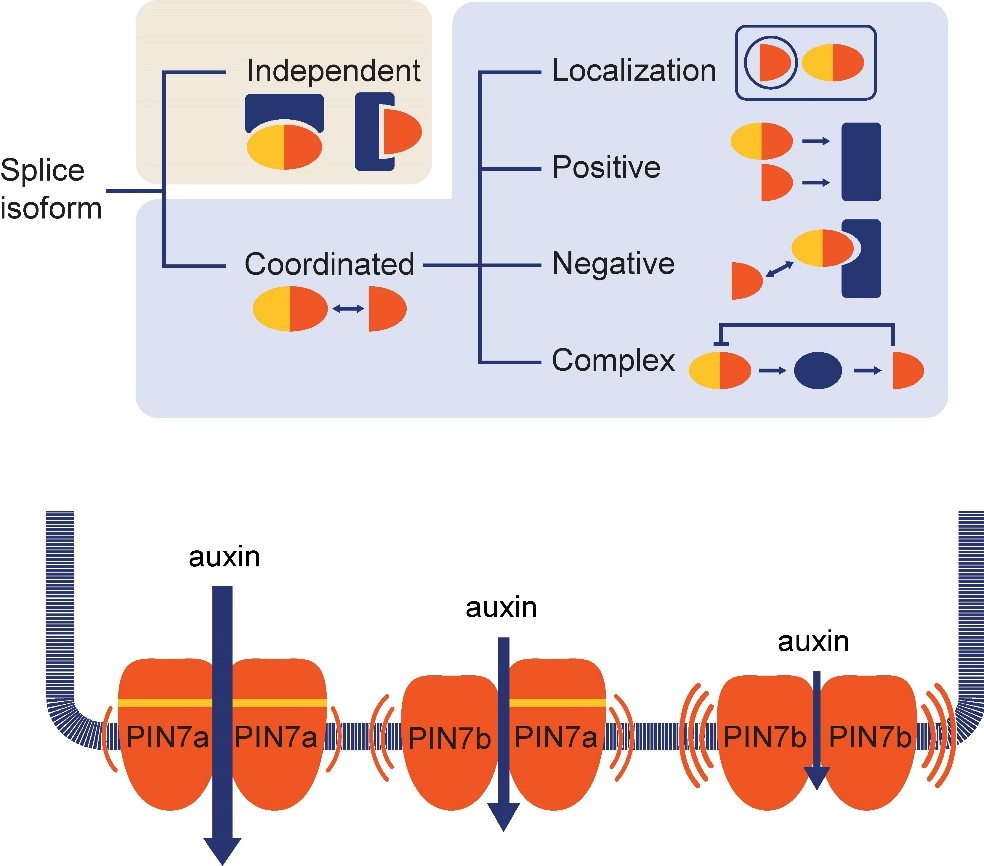14.11.2023: Kamil Růžička (Institute of Experimental Botany of the Czech Academy of Sciences, Prague): Mutual activity of auxin transporter PIN7 splice isoforms modulates tropic response in Arabidopsis, HS 31.11, Institut für Biologie, Bereich Pflanzenwissenschaften, Schubertstraße 51, 17.00 bis 18.30 Uhr
Auxin gradients are crucial for plant development. Their properties are dependent on the controlled activity of polar auxin transporters. The prominent regulators of auxin fluxes are the transporters from the PIN-formed (PIN) family. Despite tremendous progress in past years, many details about the PIN-mediated auxin transport remain unanswered. Alternative splicing (AS) is an essential step in gene expression that significantly increases transcript and protein diversity. Surprisingly, the physiological purpose of AS and its contribution to proteome diversity remain poorly described.
Here, on the example of PIN7, a central auxin transporter, I introduce AS as a relevant regulator of auxin transport. We have characterized two PIN7 splicing isoforms, PIN7a and PIN7b, examining their molecular properties and mode of mutual interaction in the context of the current knowledge about polar auxin transport. We reveal that the PIN7 isoforms are translated, differing in a resulting four amino acid stretch. They interact and mutually influence each other’s mobility within the plasma membrane. Phenotypic complementation tests indicate that PIN7b markedly reduces the prominent PIN7a activity, which is required for correct auxin-mediated tropic responses. Our further ongoing work aims to characterize the cues modulating the PIN7a/b expression ratio.
In sum, our data highlight novel mechanistic aspects of PIN-mediated auxin transport and evidence the hidden and largely enigmatic physiological role of AS.
